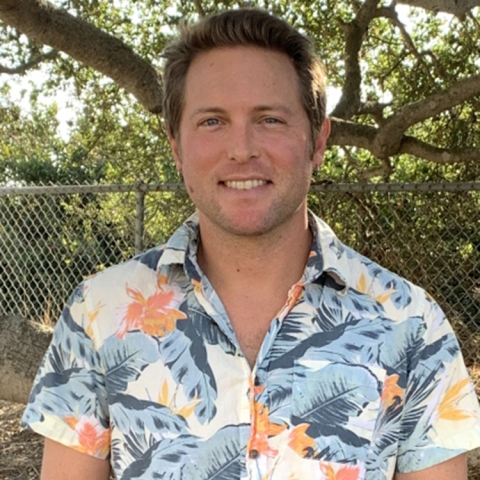Investigating the changing disease ecology of California
As our environment changes so, too, does the way in which diseases spread. That’s why UC Santa Barbara’s Andy MacDonald plans to investigate how changing trends might impact vector-borne diseases. MacDonald has just received a $1 million CAREER Award from the National Science Foundation to study the ecology of West Nile virus in California’s Central Valley over five years. Part of the project also includes collaboration and outreach with Bakersfield College and Central Valley communities.
“Using West Nile as a case study, this project will investigate how seasonal activity of mosquito vectors and their bird hosts will respond to environmental change,” explained MacDonald, an assistant professor at the Bren School of Environmental Science & Management. One goal is to find out whether and where the activity of mosquitoes and birds is likely to become more synchronous as climate changes. “More synchronous activity will likely increase disease transmission and human health risks.”
Researchers and government scientists conduct an impressive amount of surveillance on mosquitoes and viral circulation in the insect’s populations, as well as human case surveillance for a variety of diseases. This has helped identify epidemiological trends and uncover key ecological interactions that underpin disease risks. “But global changes, including climate and land use changes, are shifting when and where species are active,” MacDonald explained. And many investigations into this question oversimplify the ecology, for example focusing only on how mosquitoes respond to changes.
That’s why MacDonald plans to examine both the vectors and their hosts in this project. His team will draw upon mosquito and viral surveillance data from government agencies as well as citizen science data on bird abundance and distribution from apps like ebird and the Cornell lab of ornithology.
MacDonald’s $1.03 million grant will provide five years of funding for graduate students and postdoctoral researchers, as well as support field research in the southern San Joaquin Valley and data-driven modeling. Part of this will also go toward support, outreach and education activities in collaboration with Bakersfield College and the Kern Mosquito and Vector Control District.
The collaboration has two facets. The first addresses the public health implications of this work. MacDonald and his team will design outreach materials to communicate the risks of mosquito-borne disease in the Central Valley, their seasonality and how they might change in the future. He will partner with the Kern Mosquito and Vector Control District and California Department of Public Health on this aspect of the project.
The second facet is educational. “Community college is an enormously important socio-economic ladder in California,” MacDonald said, “particularly for those students who transfer to a UC campus for their final years of instruction.” However, the rate at which these students successfully transfer varies substantially by socio-demographic background and region. Collaborating with Bakersfield College will provide research and field experiences to some of the students there. These undergraduates will have the opportunity to visit UC Santa Barbara, where they can learn about educational opportunities, the transfer process and experience life on a top tier research campus.
This project will address key questions at the interface of community ecology, global change ecology and human health. “Moreover, we will do so in a region that has been historically underserved and understudied in the state,” MacDonald said, “but that stands to see some of the largest changes in mosquito-borne disease risk.”
Harrison Tasoff
Science Writer
(805) 893-7220
harrisontasoff@ucsb.edu




